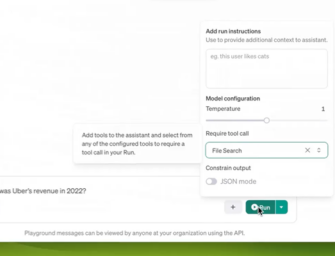Galaxy Home Mini Shows Up at SDC. Will it Arrive in Market Before its Larger Peer and Does it Matter?

Image credit: Yüksel Tolun
The Samsung Developer Conference (SDC) showcased Bixby and a lot of hardware ranging from televisions to kitchen appliances. However, the Galaxy Home was nowhere to be found. Galaxy Home is the smart speaker that Samsung demonstrated way back in August 2018, was said to be “coming soon” and never arrived. We saw many of them at SDC 2018, but none appeared to be working and demonstrators said the exhibit hall was too noisy to show off the devices.
DJ Koh, Samsung co-CEO, then said in February 2019 that it would arrive in April. It did not. We heard rumors in September that Galaxy Home would then arrive later this year. Samsung.com briefly had a banner in September that said Galaxy Home was coming soon but that soon vanished. Then it was a no-show at SDC where you’d expect they would have dozens littering the demonstration areas if it were, in fact, ready to launch. If Samsung is planning on a holiday 2019 release, the window is closing.
Galaxy Home Mini Public Debut

There was, however, another Samsung smart speaker at SDC. The Galaxy Home Mini made its first public appearance. As you might expect, Galaxy Home Mini is more diminutive than Galaxy Home. The difference between the two devices is similar to what you would find between the Google Home Mini (now known as Nest Mini) and Google Home Max. Like the Max, the Galaxy Home was designed for the premium smart speaker segment where audio fidelity and powerful bass are considered essential. Mini devices are designed to offer low-cost, ubiquitous access to voice assistants in the home.
Samsung has not demonstrated a mid-range speaker that is comparable to the Amazon Echo or Google Home smart speakers. Although there is no guidance today on pricing, Galaxy Home Mini has the profile of an entry-level smart speaker which today carries a typical list price of about $50 and is often discounted below $30. The larger, audiophile-ready, Galaxy Home is expected to be priced around $300. It will compete with Max, the new Echo Studio from Amazon and offerings from Bose and Harman Kardon.
Taking on HomePod
Another good analogy for Galaxy Home is Apple’s HomePod. That is likely the product Samsung was eying as it was preparing to launch Galaxy Home. Samsung competes directly with the iPhone in the premium smartphone segment and surely did not want to see its main rival offer a premium speaker and not offer an alternative. That might have put the Galaxy and Note smartphone lines at a disadvantage if it were seen to lack of key peripheral offered by a rival.
However, Samsung has surely noticed that HomePod has struggled to gain traction despite the vaunted Apple brand and its loyal customer base. There appears to be no linkage between smartphone purchases and the availability of a complimentary premium smart speaker. This likely relieved some pressure to get to market quickly.
Samsung also has had some high profile product launch problems over the past three years. The Galaxy Fold smartphone was pulled back from launch before it even shipped after some early reviewers encountered issues with the screens. And, few people will forget the negative reception of the original Bixby that debuted with the Galaxy S8 in 2017. The New Bixby, available since fall 2018 has received more positive reviews for its use on smartphones but a poor experience on Galaxy Home, for whatever reason, might be blamed on Bixby. Given that Bixby is more critical for Samsung going forward and it already has some lingering issues from the original voice assistant launch, caution is probably the best strategy.
Entry-Level Device is More Critical Today
The premium smart speaker segment is something less than 10% of sales today. Missing out on that for another quarter or two is not going to have a big impact on Samsung’s overall Bixby strategy which is so tied to its phones and other appliances. The low-priced value segment, however, is a bigger deal. It is the segment that has driven most smart speaker adoption with the popularity of the Echo Dot and Home (Nest) Mini. If Samsung wants a Bixby presence in the home to complement its appliances that don’t yet have embedded microphones, the Galaxy Home Mini is the more important smart speaker product.
Galaxy Home Mini’s anticipated price point is also critical. First, if it is priced around $50 or less, it is a low-risk purchase for Samsung fans that want to give it a try. Second, the pricing level works well with bundling incentives. Samsung gave away a lot of Galaxy Buds earbuds with the Galaxy S10 launch promotion in early 2019. This offered an added incentive for consumers to buy the new phone and simultaneously adopt another product from Samsung that will enhance the user experience and tie them more into a Bixby environment. You should expect the same tactic to be employed with the Galaxy S11 launch except for this time the peripheral give-away will be Galaxy Home Mini.
So, we might see Galaxy Home or Galaxy Mini this holiday season, but don’t count on it. There were only a couple of the Mini devices at SDC and consumer testing of the devices in Korea is relatively recent. It may arrive for Korean consumers first as signals for a U.S. launch are not strong today. However, the device does exist, there is FCC approval, consumer testing has taken place in Korea, and it would be a good fit for Samsung’s Bixby strategy. If we don’t see Galaxy Home Mini in the next month, you can expect it to arrive alongside the Galaxy S11 in February.
Follow @bretkinsella Follow @voicebotai
Bixby Views is What Every Voice Developer Wants and Reinforces Samsung’s Biggest Differentiator








